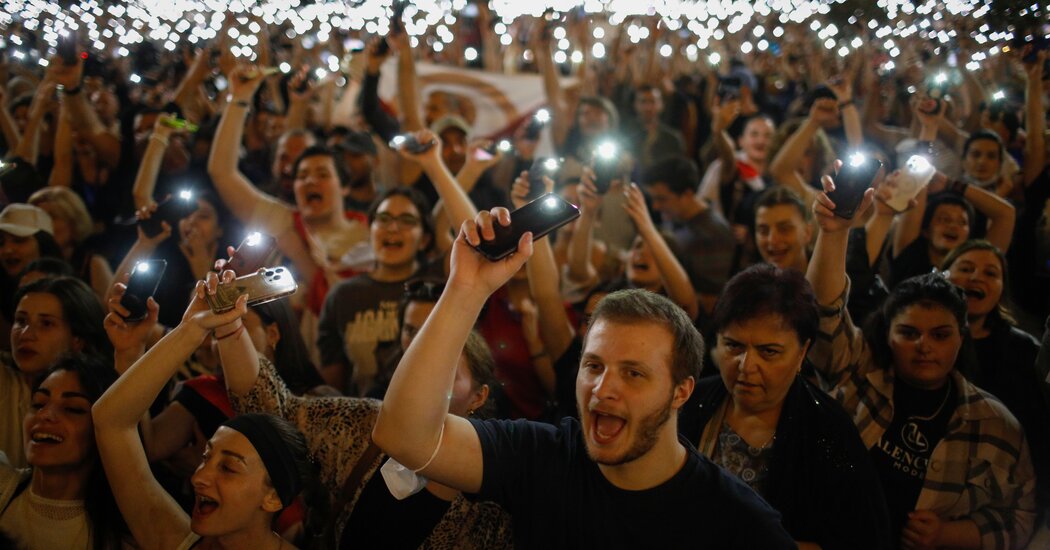
Security forces clashed with protesters in Georgia's capital on Wednesday evening after the eastern European nation's parliament advanced controversial new legislation that triggered weeks of demonstrations.
Since the ruling Georgian Dream party pushed through Parliament a bill early last month that the pro-Western opposition says could be used to repress dissent and hinder the country's efforts to join the European Union, protesters took to the streets of the country. capital, Tbilisi, night after night.
Their numbers increased on Wednesday after Parliament approved the bill in the second of three required votes.
The bill would require non-governmental groups and media outlets that receive more than 20% of their funding from foreign sources to register as organizations “bearing the interests of a foreign power” and provide annual financial reports on their activities. Violations would result in heavy fines.
It resembles a 2012 law in Russia that has been used to stifle anti-Kremlin advocacy groups and media organizations. Critics say one of the goals of the new bill, which they call “Russian law,” is to more closely align Georgia, a former Soviet country of 3.6 million people, with Moscow.
Ursula von der Leyen, president of the European Commission, expressed “great concern” about the situation on Wednesday and condemned the violence on the streets of Tbilisi.
“The Georgian people want a European future for their country,” he wrote in X. “Georgia is at a crossroads. She should stay the course towards Europe”.
On Thursday, UN human rights chief Volker Türk said he was also concerned about “reports of unnecessary and disproportionate use of force by law enforcement” and called on Georgia to withdraw the draft law.
The government – led by Georgian Dream since 2012 – says the bill aims to make foreign financing more transparent and was modeled on an American law dating back to 1938 and other similar measures passed or proposed by other Western countries.
He attempted to pass the law last year but backed down in the face of large-scale protests. This time, the party seems determined to pass it through Parliament, although lawmakers will most likely have to ignore the veto of the country's president, Salome Zourabichvili.
Ms. Zourabichvili, whose duties are largely ceremonial in Georgia's parliamentary system, was supported by Georgian Dream when she was elected in 2018, but has since become a fierce critic of the ruling party.
Marika Kochiashvili contributed reporting.
